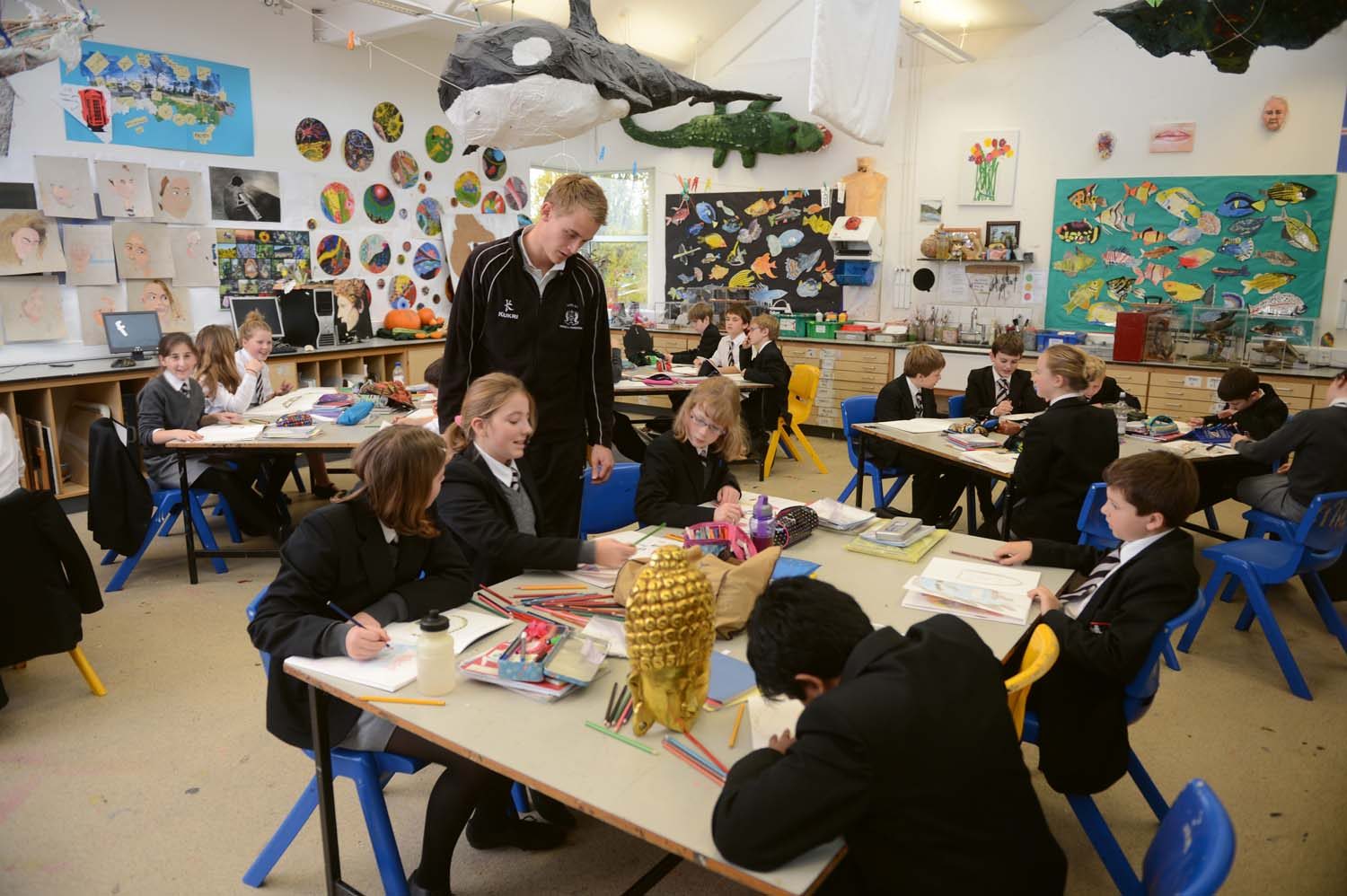School of thought: the real impact of social inequality on progress
Study shows disadvantaged children’s struggles are not down to a simple lack of character or attitude.
What does it take for children to succeed at school? A growth mindset? A strong character? A good attitude for learning? The bootstrap argument suggests that these core elements will be enough for a child to ‘get on’, but there is one key factor that the theory fails to consider – social inequality.
“Educational inequality cannot be solved primarily through social and emotional learning,” says Dr Rob Gruijters from Cambridge’s Research for Equitable Access and Learning Centre. “The idea that children can overcome structural disadvantage by cultivating a growth mindset and a positive work ethic overlooks the real constraints many disadvantaged students face, and risks blaming them for their own misfortune.”
Students who lack the right mindset may perform less well at school – but that may be because their academic performance has eroded self-belief
Gruijters is lead author of a new study that challenges the widespread policy conviction that work ethic, mindset and socio-economic skills – or ‘pulling oneself up by one’s bootstraps’ – are key to improvement. Researchers from the Universities of Cambridge, Zürich and Tübingen analysed data from almost a quarter of a million 15-year-olds from around the world and found that social and emotional learning – which has become an industry projected to reach $3.9bn in the US by 2025 – cannot solve educational inequality, despite many of these learning providers suggesting their services can help to narrow the achievement gap.
It follows a Cabinet Office survey from 2015 which said that neglecting social and emotional learning would “perpetuate the cycle of advantage or disadvantage across generations” in the UK. However, the study found that these qualities accounted for around nine per cent of the gap – estimated to be around three years of school – but which could be an overestimation due to low achievement affecting children’s self-belief.
Instead, the study’s authors state that for meaningful change to occur, policies should address the structural reasons that cause some students from lower socio-economic backgrounds to underperform. These include differences in school quality, resourcing and funding; the lack of high-quality preschool options in many countries; and a lack of extracurricular clubs, societies and out-of-school opportunities compared with their wealthier peers.

The academic benefits that disadvantaged children gain from socio-emotional skills were found to be similar to those gained by advantaged children. This contradicts the widely held assumption that focusing on these skills is especially important for children from socio-economically disadvantaged backgrounds, a belief which underpins many social and emotional learning programmes.
“Students who lack the right mindset may perform less well at school, but that may be because their academic performance has eroded their self-belief; not the other way round,” says Isabel Raabe, a researcher in the Department of Sociology at the University of Zürich.
Developing social and emotional skills is hugely valuable for all children says another of the report’s co-authors, Nicolas Hübner, assistant professor at the University of Tübingen, but the evidence suggests it has little to do with why low-income students are more likely to struggle academically. “According to our results, it is not a magic bullet for tackling the socioeconomic achievement gap.”

Teachers in focus
“Now we’ve got to make sure we embed the good practices”
Why did you go into teaching? I was really lucky to have fantastic teachers at school. Schools are really important places for developing that sense of community and relationships in young people, and I wanted to be part of giving that back.
What’s your role today? I’m Headteacher at Somersham Primary School. It’s a typical village school, with 270 children. And it’s a cliché, but no two days are the same – sometimes I’m teaching, but there’s lots of people management. Supporting children with safeguarding, special educational and behavioural needs has significantly increased over the past 15 years.
What have you been working on over the past year? We’ve done a lot of work to make sure the quality of teaching and learning is as consistently high as it should be. Now that we’ve made progress with what happens in the classroom, we’re able to look more widely at extracurricular clubs and visits so that children aren’t always sitting at desks but are getting out and about – outside and in the community.
How did Cambridge influence your working life? When Somersham was struggling to recruit, we knew we had to make our own luck. We asked the faculty if we could host placements and started mentoring, which was also a great boost for the staff. Even though we’ve been through tricky times, we are good; we know what we’re doing. We host all of the primary PGCE trainees for a day visit, and one of our early career teachers from Cambridge chose to apply here for a permanent job.
What’s next? Our ‘outstanding’ Ofsted label [Somersham was rated ‘outstanding’ five years after it was branded ‘inadequate’] is a fantastic recognition of everyone’s hard work. Improvement has been very quick, so we’ve got to make sure we embed the good practices. Just because you’re outstanding, it doesn’t mean that there’s nothing left to do and learn.



